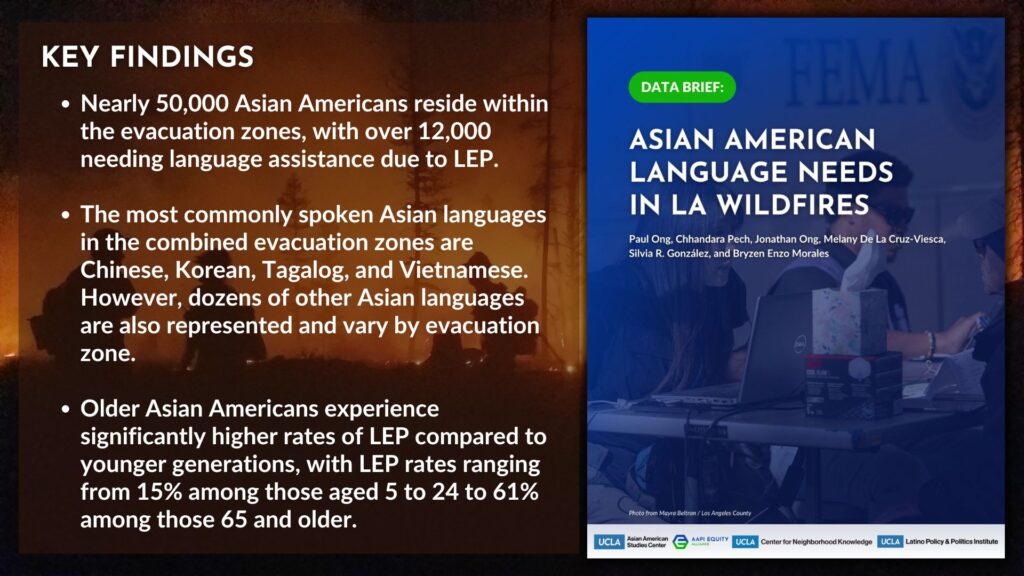It’s everyone’s worst nightmare to be left behind during an emergency. Sadly, it is the ones who need the most support who are often overlooked.
During the Los Angeles wildfires, a Thai-speaking senior-living home lost access to food, flashlights, oxygen tanks, and medications due to a 48-hour power outage. With limited English proficiency (LEP), they encountered challenges when alerts, materials, and resources came in languages they couldn’t understand.
In a new data brief by UCLA researchers and AAPI Equity Alliance, we illustrate the significant language barriers facing Asian American communities, particularly those with LEP, who reside in fire evacuation zones during the wildfires.

The Thai senior-living home is just one of many stories. Thankfully, AAPI Equity Alliance members – Asian Pacific Counseling and Treatment Centers (APCTC) and Thai Community Development Center (Thai CDC) – mobilized swiftly to provide 300 donated meals from local Thai restaurants and over 20 emergency kits. The Thai seniors felt immense relief, eating meals they felt culturally connected to and receiving critical resources in the language they understood.
AAPI Equity Alliance joins UCLA Asian American Studies Center, UCLA Center for Neighborhood Knowledge, and UCLA Latino Policy & Politics Institute in calling for improvements to language access for disaster communications.
We must move beyond a one-size-fits all approach to accommodate for the diverse needs of our communities. This looks like a multilingual alert system, in-language emergency materials, and proactively assessing language needs in different neighborhoods.
The Los Angeles wildfires present an opportunity for government agencies, emergency responders, and community organizations to build a more inclusive disaster response framework. Only by working together can we better prepare and protect hard-to-reach communities.
As a coalition of nearly 50 member organizations that specialize in culturally and linguistically appropriate services for Asian Americans and Pacific Islanders (AAPIs), we are committed to strengthening our partnerships with local, state, and federal governments to ensure no one – regardless of language ability – gets left behind.